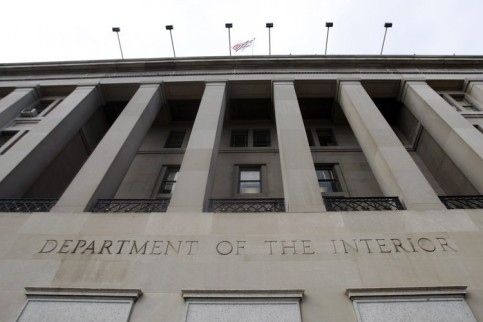
Sep 18, 2018 BLM Waste Prevention Rule Finally Complies with the Law
DENVER – Western Energy Alliance and the Independent Petroleum Association of America (IPAA) applaud the release of the Bureau of Land Management’s (BLM) waste prevention rule, also known as the BLM venting and flaring rule. Unlike those rushed out at the end of the Obama Administration, the new rule adheres to the law and does not usurp the air quality authority that Congress granted only to the states and the Environmental Protection Agency (EPA).
“We are relieved that BLM’s final rule has been released and that it actually addresses waste prevention,” said Kathleen Sgamma, president of Western Energy Alliance. “The late 2016 Obama Administration rule was all about regulating air quality, which is the job of EPA and the states under the Clean Air Act, not BLM which has no air quality expertise or authority. The new regulation restores the rule of law while reducing waste of natural gas, which was supposed to be the intent of the original rule in the first place.”
IPAA President and CEO Barry Russell said, “IPAA applauds the Department of Interior for taking action to fix this highly-flawed rule. The Obama-era rule was crafted with an unrealistic understanding of the real impact to our member companies. As environmental stewards and businessmen and women who live in the communities where they work, IPAA member companies strive to explore for and produce as much American oil and natural gas as possible, while always being mindful of the need to protect public lands and the environment. The Trump Administration’s rule recognizes this fact and acknowledges the cost burden placed on companies that work and explore on federal lands.”
Background
BLM rushed out the waste prevention rule after the November 2016 election and right before the end of the Obama Administration. Western Energy Alliance, IPAA and the states of Wyoming, North Dakota, Texas and Montana sued in the U.S. District Court for Wyoming shortly thereafter, challenging the fact that BLM’s overreaching rule went beyond legitimate waste prevention and into the realm of air quality control. Only EPA and the states have authority to regulate air quality under the Clean Air Act.
Western Energy Alliance and IPAA moved for a preliminary injunction to stop the rule from going into effect in January 2017, but that motion was denied because the judge found that companies were not incurring immediate, irreparable harm, as full compliance didn’t take effect until January of 2018. While undergoing the year-long rulemaking process to substantially rewrite the rule, BLM attempted to grant companies relief from complying with it. An initial attempt to do so over the summer of 2017 using Section 705 of the Administrative Procedures Act (APA) was overturned in the U.S. District Court for Northern California in early October 2017. A later attempt to suspend certain provisions of the rule was set aside by the same court in February 2018.
Following the February 2018 ruling, Western Energy Alliance, IPAA and the states sought immediate relief from the rule in the original Wyoming District Court venue, and the court stayed provisions of the rule early in 2018. As a result, the 2016 rule never fully went into effect. Environmental plaintiffs appealed the Wyoming ruling to the Tenth Circuit Court of Appeals, and briefing for that appeal continues to this day.
# # #
Western Energy Alliance represents over 300 companies engaged in all aspects of environmentally responsible exploration and production of oil and natural gas in the West. Alliance members are independents, the majority of which are small businesses with an average of fifteen employees. Learn more at www.WesternEnergyAlliance.org.
The Independent Petroleum Association of America (IPAA) is a national upstream trade association representing thousands of independent oil and natural gas producers and service companies across the United States. Independent producers develop 90 percent of the nation’s oil and natural gas wells. These companies account for 54 percent of America’s oil production, 85 percent of its natural gas production, and support over 2.1 million American jobs. Learn more about IPAA by visiting www.ipaa.org and following @IPAAaccess on Twitter.








